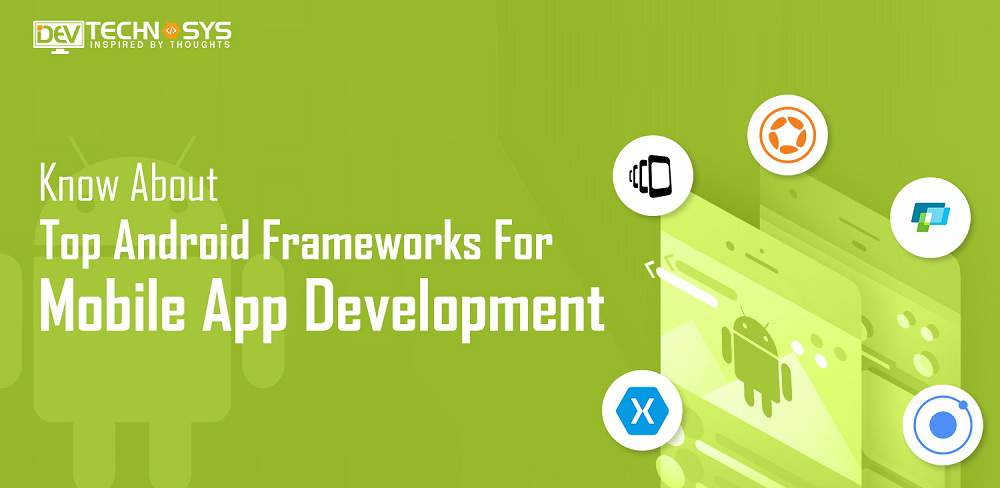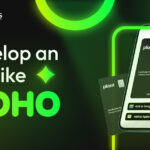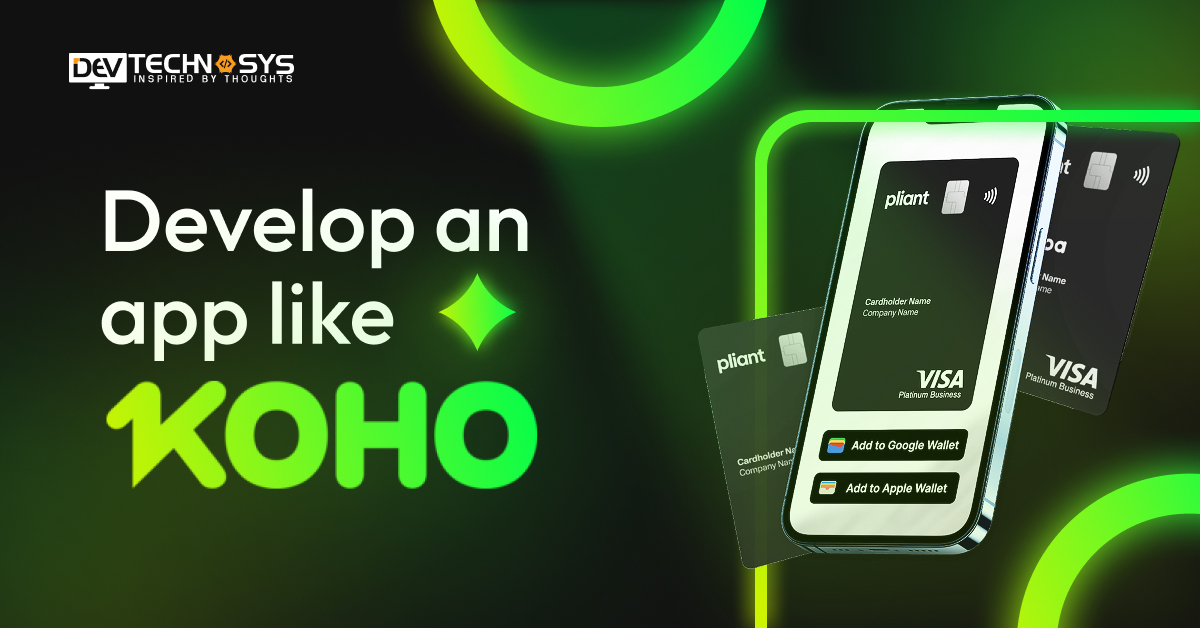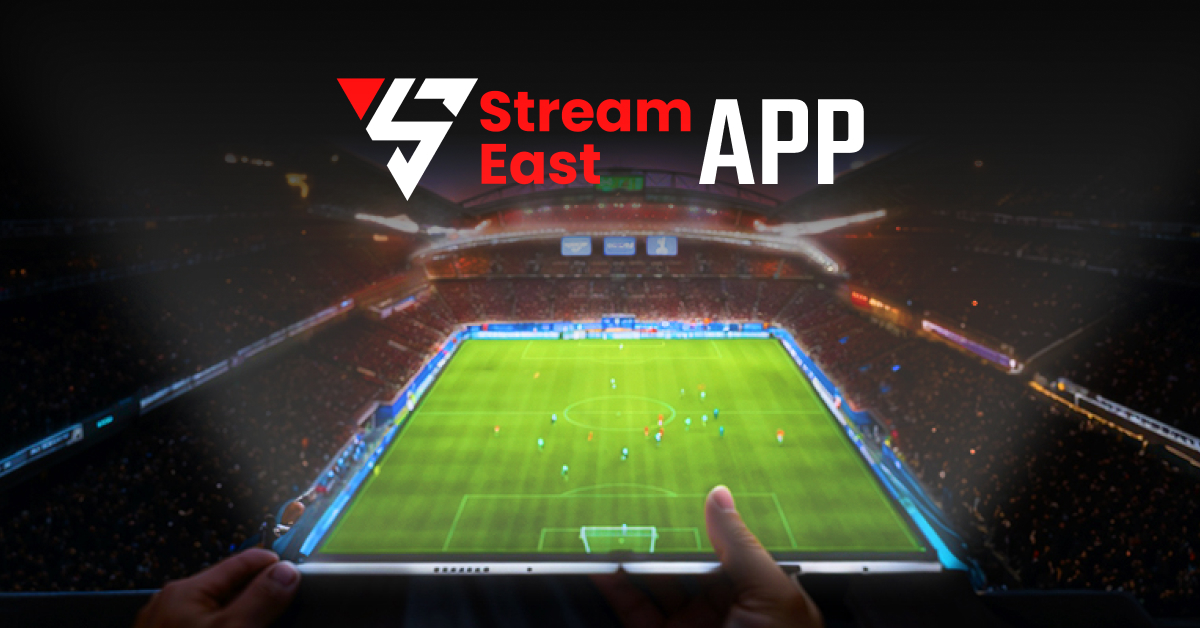Are you looking for the top Android frameworks for mobile app development? If yes, then you should read this blog. App development frameworks accelerate the process of developing mobile applications. As a result, these frameworks are in high demand. Additionally, having a mobile presence for your organization is crucial in the fiercely competitive industry of today.
This has also driven up the demand for app development frameworks. Mobile presence is not enough to help businesses succeed. First, a company must clearly determine the needs of their customers. Then develop an application to assist it in serving the demands of consumers.
Native apps without a doubt offer the finest user experience in terms of usability and aesthetics. It is not cost-effective, however, as it is difficult to penetrate the user base due to the wide range of devices on the market with different operating systems.
Frameworks for mobile app development help developers overcome this problem. These frameworks allow developers to create web, hybrid, cross-platform or mobile applications.
It is therefore important for businesses to identify and hire the best Android development company in order to create fast and responsive apps that provide the best possible user experience.
Having said that here are the top android frameworks for mobile app development in 2024:
12 Top Android Frameworks For Mobile App Development
Google Play Store has millions of Android applications, many of which are based on current frameworks. Thus, if you want to create your own Android application, you can choose the top android frameworks for mobile app development approved by an AngularJS web development company from the list below.
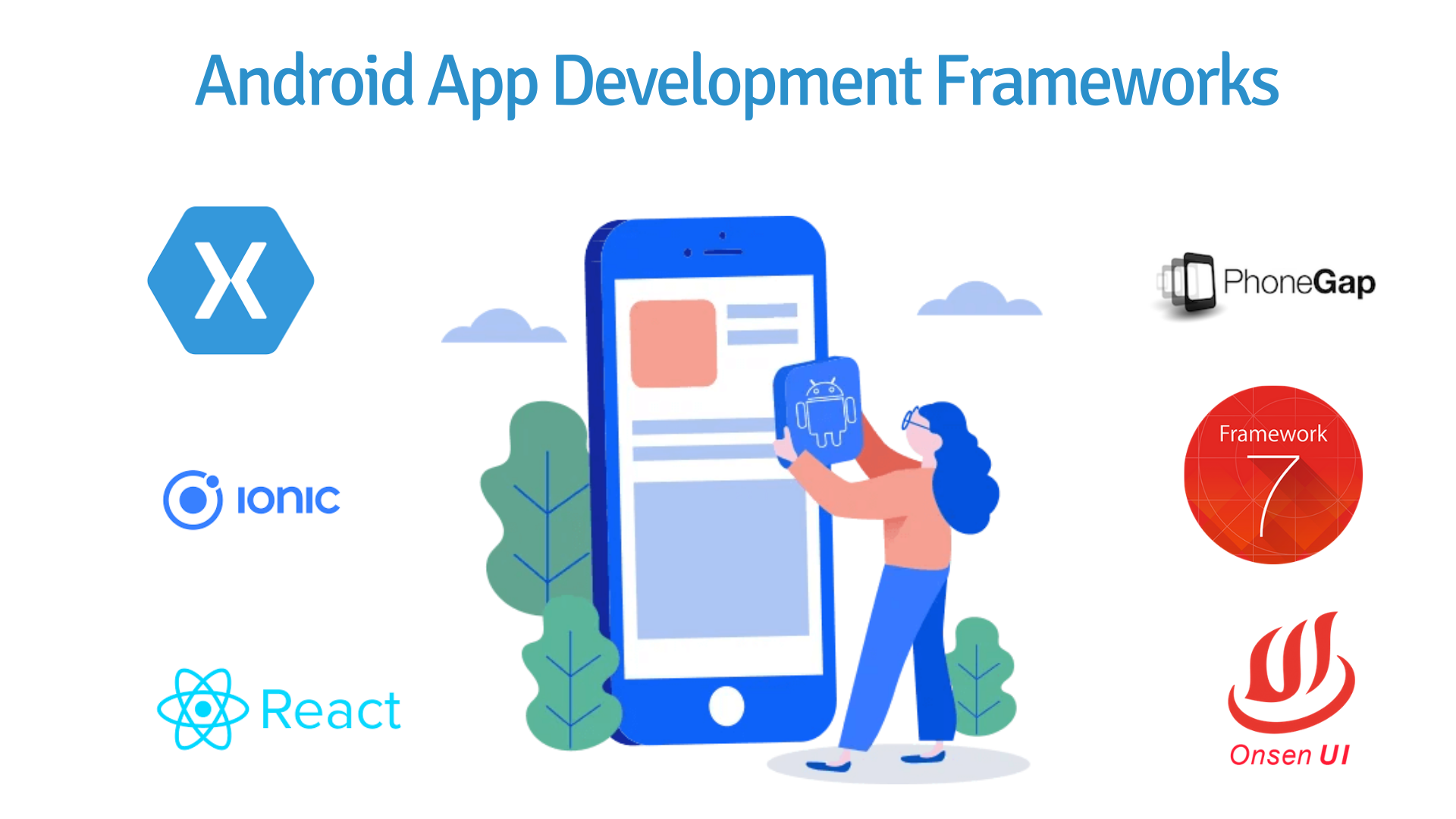
1. Ionic Framework
Ionic Framework allows you to build interactive applications. It’s a free, open-source Android Framework that was validated by MIT. It allows developers to build advanced hybrid applications by using HTML5, CSS3, JavaScript, and other building blocks.
Due to its cross-platform compatibility and ability to integrate with AngularJS, Ionic is one of the most widely used frameworks for Android development. Hire Android app developers who may use Ionic to construct both personal and business projects because it is free and open-source. They can also modify it to suit their needs.
The drawback is that there isn’t much instruction provided for getting started with Ionic, so you’ll need some knowledge with these technologies before beginning.
Ionic is a group of software applications and animations. These resources allow you to create top-notch desktop, mobile and progressive web applications with just one code base. Ionic is a popular framework because it’s built on Cordova and Angular.
2. Flutter Framework
Flutter, a software-development kit developed by Google for multi-platform mobile apps, is an alternative to other Android frameworks. The Dart programming language is used to create this framework, which is meant to make cross-platform app development more accessible. When it comes to choosing a framework, Flutter is the most well-liked option.
Flutter, one of the most popular and top Android frameworks developed by Google, makes use of a 2D renderer called Skia, which creates graphics similar to the Cupertino aesthetic and material design.
Flutter also provides a great testing framework that allows developers to run UI, functionality, and unit tests on their apps. Since Flutter doesn’t require a restart, testing runs smoothly. It also has some of the greatest hot-reloading capabilities in the business.
3. Corona SDK
Corona SDK was developed in 2009. It is an ideal software development kit for developing fast-loading games and applications. This cross-platform, general-purpose framework accelerates development by a factor ten when compared with existing top Android frameworks.
Corona achieves this through the integration of Lua – a lightweight and multi-paradigm language built on C++/OpenGL. This offers improved functionality, usability, and adaptability.
Both Mac OS X and Windows users may use Corona, a game creation tool. It allows for real-time testing. The tool Corona is well-liked among game developers.
This Android framework also has native Application Support, more than 500 APIs and a flexible Advertising Platform that is specifically tailored to the needs and requirements of developers. The API suite is feature-rich and includes graphics, widgets, network, particle effects, etc.
As they have a ton of materials that are readily available on their website, including tutorials on how to get started with the Corona SDK, you may hire Android developers to get started.
4. Xamarin
Xamarin is one of the top Android frameworks and it’s owned by Microsoft. It provides a powerful toolkit that allows developers create native apps for multiple mobile platforms using a C# codebase.
Applications developed using Xamarin may be evaluated across a range of devices thanks to Microsoft’s cloud-based testing service. It is also a popular choice among developers and a Xamarin app development company because it reduces the amount of time spent on coding and the number of problems that are encountered during the software development process.
Although the Xamarin framework has been around for a while, it is now far more popular than other Android Frameworks. Apps like Storyo, Just Giving, and The World Bank were created using the Xamarin Android frameworks.
This framework can be used to check the functionality of your app in the cloud. You can also track your app regularly. This framework is ideal for apps that are regularly tracked by the best Android developers.
5. Framework7
The newest framework for Android is Framework 7, one of the most well-liked open-source MIT licensed frameworks. It contains a variety of features that facilitate rapid and easy app launch.
This package includes all the advanced and basic Mobile User Interfaces, which you can easily integrate into different applications. Developers love features like infinite scrolling, lazy load, pull to refresh and Swiper Slider.
According to the majority of Android developers, Framework7 (Progressive Web App) is the best Android framework for building a PWA. Additionally, it is simple to use Cordova in conjunction with HTML, CSS, and JavaScript to build hybrid mobile apps instead of the usual Android languages like Java, Kotlin, and XML.
6. Dragger2
Dagger2 is a dependency injection framework that’s open-source for Java and Android apps. Square, the creators of Square’s mobile payment app, created it. It has gained popularity among developers for its ease-of-use, flexibility, and robustness.
Dagger2 can be integrated with any Java or Android projects and used as a standalone library or for Android app development. The framework allows you to inject dependencies from many different types of objects, such as Activities and Fragments into other classes during compilation.
This eliminates the need for reflection at runtime, which improves performance. Dagger2 has a scheduling feature which determines the time when dependencies are created by looking at how objects interact in code.
7. React Native Frameworks
React Native is an open-source framework, which Facebook supports. It provides support for a wide range of development tools, including their integrated development environment (IDE). It is based on React, a JS-based toolkit used to develop your own android app.
These top Android frameworks are used by companies like Instagram, Walmart, Airbnb, Tesla, and many more Fortune 500 companies to develop native mobile applications for their platforms.
React Native app development services provider or developers can write code once and have it run on any platform thanks to the bulk of React Native APIs being cross-platform, which expedites development and lowers costs.
The building pieces used by React Native are comparable to those used by the majority of Android development frameworks. The hot-reloading functionality of React Native enables developers to change files without disrupting an app’s running state. The developer community of React Native has grown at a much faster rate than Facebook had estimated.
8. Appcelerator Titanium
Titanium is an environment for cross-platform development that lets developers code JavaScript, and compile it to other platforms. With only one code base, it can create apps for iOS, Windows, and Android. This reduces waste and costs.
It accelerates the development cycle of applications and gives developers an advantage if they’ve worked with web-based apps. Titanium offers an integrated IDE for mobile developers and an android development company that want to create their own apps instead of using third-party tools.
JSON APIs may be used in the future as an alternative to REST APIs, because they’re easier to use and provide faster data retrieval.
9. jQuery Mobile Framework
According to its developers the jQuery mobile framework for Android is not only one of the HTML5 cross-platform frameworks but also the most accessible tool when it comes to launching online and mobile apps.
jQuery Mobile’s most distinctive feature is that developers can “write code only once” to run it on a wide range of platforms including Android, iOS and Windows devices, as well as Symbian and Blackberry.
The Android framework has another feature that is very popular among developers: the entire app interface is written in HTML with minimal or no JavaScript code!
jQuery Mobile is a powerful Android framework that is widely used for traversing the HTML Document Object model (DOM). Using the jQuery Android framework, event handling, CSS animation and Ajax can be simplified. The integrated theme system allows developers to customize the application style to match the colors, tastes and preferences of the target audience.
10. NativeScript Android Framework
NativeScript is among the top android frameworks for hybrid app development that’s open-source and free. It allows developers to create apps with Vue, TypeScript and Angular. It’s ranked among the best frameworks to develop hybrid apps.
Telerik is a Bulgarian android app development services provider that developed this Android framework. NativeScript allows developers to reuse plugins from a wide range of projects, regardless if they were built using Gradle or CocoaPods.
NativeScript allows web developers with a good understanding of JavaScript, HTML and CSS to build excellent progressive online applications. NativeScript is a great tool for Android app developers because it integrates UIs into the native platform offering engine. This results in UIs that look and perform like native platforms. NativeScript can provide great performance by running JS on the UI Thread.
11. Sencha Touch
Sencha Touch is one of the top Android app frameworks for custom mobile app development. You may create cross-platform applications for mobile, tablet, and desktop devices using the HTML5 framework Sencha Touch. The framework comes with a set UI components which provide a native feel and look on all devices. JavaScript code is reusable across platforms.
Sencha Touch integrates natively with features on the device, such as the camera, accelerometers, geolocations, and file systems. It is popular for creating business apps and games, and it’s one of the most widely used frameworks to develop Android apps.
12. Onsen UI
Onsen UI offers the top android frameworks to develop complex web applications that feel native across all platforms, using only one source code. Onsen UI is compatible with Angular JS 1 and Angular JS 2, and offers a wide range of learning resources. The modern framework for application development also offers a large collection of UI elements.
Onsen UI uses HTML5, CSS and JavaScript to allow developers to use their existing web-development skills. Cross-platform compatibility provides consistent performance on all devices.
Onsen UI’s features, such as automatic styling, native performance and integration with frameworks such as Angular or React, accelerate app creation and improve user experience. Onsen UI allows developers to create functional Android apps quickly, whether they are working on small projects or larger applications.
Conclusion
There are many top android frameworks and libraries for developing mobile apps. If you are a beginner, then it is best to start with the most popular one, which is Corona SDK. More experienced developers have a wider range of options they can choose from.
But if you are still confused about what library and framework perfectly fit app development for Android, then you must hire one of the top android app development companies that can be your ultimate place to get a solution. They can help you pick the right framework and libraries.
Frequently Asked Questions
1. How Much Does It Cost To Hire Android App Developers?
The cost to hire Android app developers varies widely based on factors like location, experience, project complexity, and hiring model. On average, rates can range from $15 to $25 per hour.
2. How to Develop an Android App?
To develop an Android app, follow these steps:
- Define the app’s purpose and target audience
- Design the user interface and user experience
- Hire Xamarin App Developers
- Write and test the code using Android Studio
- Debug and optimize the app
- Final Release
3. How Much Does it Cost to Build an Android App?
The cost of building an Android app varies widely based on complexity, features, design, and development time. Basic apps might start around $8,000, while more complex ones can exceed $25,000. Customization, third-party integrations, and ongoing maintenance also impact the overall cost. It is suggested to consult with an on demand app development company to know the exact cost estimation.
